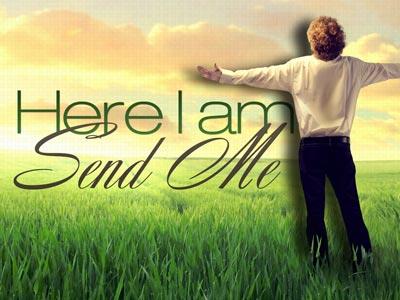-
Get To Washing Those Feet! Series
Contributed by The Rev Deniray Mueller on Apr 15, 2017 (message contributor)
Summary: the lessons from Jesus washing the feet of His disciples
GET TO WASHING THOSE FEET!
Lord, may our eyes see, our ears hear, and your words be written on our hearts. Amen
Here, and throughout the Christian world, tonight we recognize the origin of two significant events in the life of Christ as we commemorate Maundy Thursday. One of them is Eucharist; we all know this ritual because we celebrate the Eucharist whenever we gather to worship. We are very familiar with that rite and sometimes feel detached if we don’t regularly receive the Body and Blood of Christ.
However, the second event is much less recognized and is often associated by many Christians with an 'ick' factor. . . that of feet washing.
I just saw some of you get that 'not me' look on your face when I even mentioned it.
But let's examine the ritual and practice of feet washing.
We know that Jesus didn't do anything without a very good reason. He only had three years to get his message across and change the course of human history, so he didn’t have any time to waste. So let’s look at the practice of foot washing and see if we can understand why he did what seems repugnant to so many of us.
1. Foot washing was a sign of common courtesy.
It seems to us that what Jesus did was bizarre and distasteful, but in those days foot washing was what you did when somebody came to your house. The roads in Palestine were dry and dusty, except when it rained and then they turned into a quagmire of mud. So even if your feet were clean when you began your journey, by the time you got wherever you were going, your feet would be covered with dust and dirt and grime and grit. The practice in those days was that when you entered a house you would be greeted with a kiss on the cheek, offered oil to rub on your face, and then a servant would kneel down, take off your sandals, and wash your feet. This was the practice.
But what was NOT common was for the host or the master of the house to wash the feet of his guests. Foot washing was the work of slaves. A rich man never had to wash anybody’s feet because he had enough servants to cleanse the feet of anybody who came to see him. So when washed the feet of his disciples, he broke the accepted rules - and that’s why the disciples were so shocked—not that somebody would wash their feet, but that Jesus was the one doing it. That violated all customs of the day.
2. Foot washing is dirty, smelly and humiliating.
Have you ever tried to wash somebody’s feet at the end of a long, hard day? Feet that are covered with grime, perspiration, feet that don’t smell good? It is unpleasant, to say the least.
There are some churches that practice foot washing as a part of their regular practice. They even call it a Third Sacrament —Baptism, Eucharist, and the Washing of Feet.
I have participated in feet washing, as the one being washed and the one washing. I have found it to be humbling, every moving, both as the washer and the one being washed. You are exposing yourself completely to the other person; it makes you vulnerable. But this action, no matter which role you take, shows us immediately how Jesus washing his disciples’ feet was the ultimate feeling of servanthood.
3. Foot washing is an act and symbol of servanthood.
In the Gospel reading, we heard Peter object to Jesus washing his feet:
“No,” said Peter, “you shall never wash my feet.” (John 13:8)
In Peter’s mind and in the mind of the other disciples, what Jesus was doing was demeaning. You just didn’t do that. That was slaves’ work. What bothered them was not what he was doing, it’s that He was doing it. Foot washing was OK as long as a person of lower class or lower position did it. But to see the Son of God do it, that was a problem. Jesus was acting as a servant, not the Master!
Everybody has dirty feet. That’s one good thing about foot washing. Everybody around you has dirty feet. What if we took a few minutes now to prove that, by taking our shoes off and checking everybody out? That would be the end of this service.
It is a bit frightening to realize that underneath the exterior, we have all got dirty feet, and weaknesses, sores, scars and sins.
Jesus came to a world of dirty feet. He came to clean the dirty feet, which means he came for you because your feet are dirty too.
As our Gospel today told us, when Jesus had finished washing the disciples' feet, He asked:

 Sermon Central
Sermon Central



